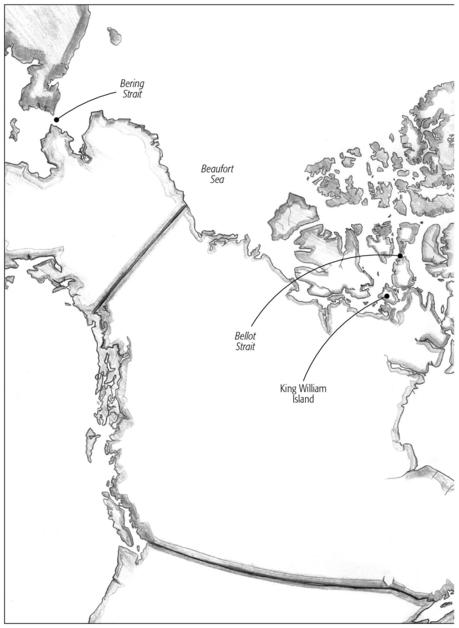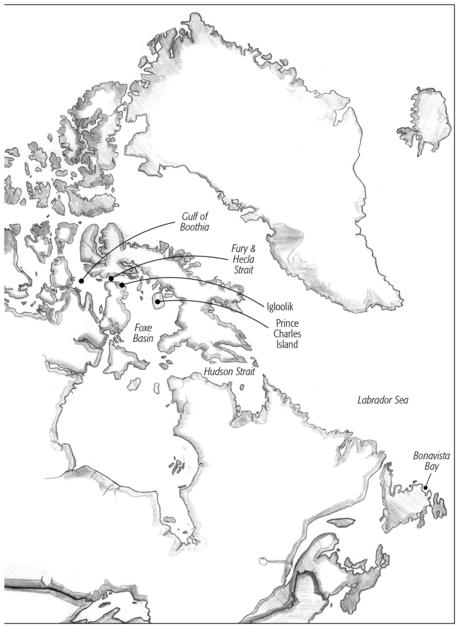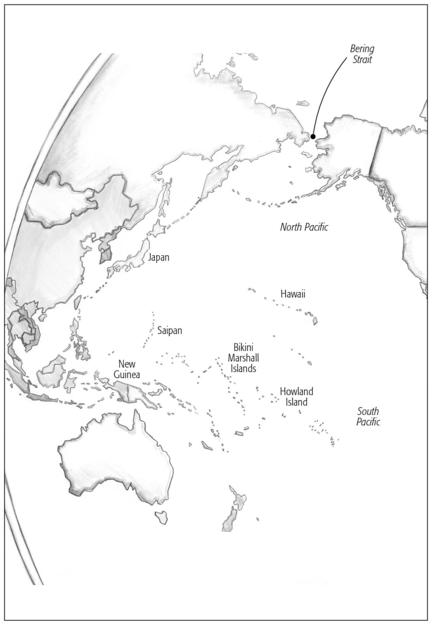Ghosts of the Pacific
Read Ghosts of the Pacific Online
Authors: Philip Roy



OTHER BOOKS BY
PHILIP ROY
River Odyssey
(2010)
Journey to Atlantis
(2009)
Submarine Outlaw
(2008)

GHOSTS OF THE PACIFIC
Copyright © 2011 Philip Roy
All rights reserved. No part of this publication may be reproduced, stored in a
retrieval system, or transmitted, in any form or by any means, without prior
written permission of the publisher, or, in Canada, in the case of photocopying
or other reprographic copying, a licence from Access Copyright (the Canadian
Copyright Licensing Agency).
RONSDALE PRESS
3350 West 21st Avenue, Vancouver, B. C., Canada V6S 1G7
Typesetting: Julie Cochrane, in Minion 12 pt on 16
Cover Art & Design: Massive Graphic
Maps: Peter Roy
Ronsdale Press
wishes to thank the following for their support of its publishing
program: the Canada Council for the Arts, the Government of Canada through
the Canada Book Program, the British Columbia Arts Council and the Province
of British Columbia through the British Columbia Book Publishing Tax Credit
program.
Library and Archives Canada Cataloguing in Publication
Roy, Philip, 1960â
Ghosts of the Pacific [electronic resource]/ Philip Roy.
(The submarine outlaw series)
Electronic monograph in HTML format.
Issued also in print format.
ISBNÂ 978-1-55380-136-8
I. Title. II. Series: Roy, Philip, 1960â . Submarine outlaw series.
PS8635.O91144G56 2011a jC813'.6 C2011-903013-6
For my mother,
Ellen
ACKNOWLEDGEMENTS
I want thank the crew at Ronsdale, especially Ron, Veronica and
Erinna, who patiently and tirelessly guide me towards greater structure, clarity, and coherence. I also want to thank the many young
readers in schools and libraries around the country. If it was a personal fantasy that initiated this series, it is these wonderful readers
who keep it going. I am so grateful for the support I receive from
Thomas, Peter and Julia, whom I admire so much and learn from
continually. Also my mother, Ellen, to whom this book is dedicated.
She continues to be my most trusted reader and critic. I have been
blessed with the greatest friends: Chris, Natasha and Chiara, whose
home is my sanctuary; and many others to whom I owe thanks, including Zaan, Hugh, and Jakeâa most promising young man, and
sweet Dale, to whom I am more indebted than I can say. I also want
to mention Diana, Maria and Sammy, Michaela, Philipp and Nini,
who have inspired and supported me each in their own way.
There are people I want to acknowledge for the amazing work they
are doing in their communities, such as Beth Maddigan in St. John's,
Barbara Kissick in Charlottetown, Amy Schmidt in Tatamagouche,
and Lisa Doucet in Halifax. These are the people who selflessly bring
books to young readers across the country. It is an honour to work
with them.
“The sea is dying. If the sea dies . . .
the world dies.”
âÂ
NANUQ OKPIK, IGLOOLIK
“Yea, slimy things did crawl with legs
Upon the slimy sea.”
âÂ
SAMUEL TAYLOR COLERIDGE
,
The Rime of the Ancient Mariner



Chapter 1

I WAS FOURTEEN
when I went to sea for the first time. That
was two years ago. When we dragged my submarine across
the sand in the middle of night and backed it into the water
and unhooked it from the trailer, we didn't know if it was
going to bounce up and down like a rubber duck or sink like
a stone. Either way it wasn't coming out of the water. It ended
up sailing perfectly, which didn't surprise me at all because it
was designed by Ziegfried, a junkyard owner and genius, and
my best friend, although he was more like a father to me. My
own father left when my mother died, when I was born.
It took us two and a half years to build. Ziegfried was extremely fussy when he constructed things, especially things
that required safety. But it was because of him that I was
able to go to sea in the first place, and because of him that I
am still alive two years later.
If you touched the hull of my submarine it would feel
hard and cold like the shell of a loggerhead sea turtle or the
fin of a whale. It is about the size of a small whaleâtwenty
feet long and eight feet in diameter, with a portal jutting up
another three feetâjust big enough for one person, and a
dog and seagull crew. It is beautiful in a way, swallowed up
by the dark waters of Newfoundland, although it is a kind of
beauty that is not really friendly. Whales don't look friendly
up close; they look scary, but in a beautiful sort of way.
Inside, the sub is lined with cedar and glows with light. It
is warm and cosy, even in the coldest weather and wildest
storms. And though the hull is made of steel, and steel sinks
like lead, the sub floats like a coconutâabout three-quarters
submerged. It is in perfect balance between weight and displacement. This is buoyancy. Add a little water and you sink.
Add a little air and you rise. Attach an engine and propeller
and you can sail anywhere in the world you want to. And
you can hide. This is the magic of submarines. This is my
world.
In two years we had taken three journeys: around the
Maritimes, across the Atlantic and into the Mediterranean,
and up the St. Lawrence River to Montreal, where I met my
father and sister for the first time. Now, I wanted to go to the
Pacific, a voyage that would take us right around the world.
The Pacific Ocean was like a dragon in my imagination when
I was little, wrapping itself around the world and spinning
typhoons and tsunamis with its tail while the rest of the
world was sleeping. It is the biggest body on earth. I used to
think that everything in the Pacific was bigger than everywhere else: bigger fish, bigger waves, bigger storms, bigger
treasures. I still didn't know if that was true or not. And I
figured it was time to find out.
But Sheba, my friend and advisor, wasn't entirely happy
with my plans. Sheba was the first person I met when I went
to sea the very first time. She looked like a mermaid, without the tail. She was tall, like Ziegfried, but lean and beautiful. Ziegfried fell in love with her the very first time he saw
her, and he could barely speak for about two weeks after.
Sheba had red hair that went all the way down to her belly,
with little wave-like curls in it, and green eyes like a cat. She
wore flowery, flowing dresses and jewellery that clinked and
clanged every time she moved. She lived on the tiniest of
islands, in Bonavista Bay, with a houseful of dogs, cats, goats,
birds, reptiles, bees and butterflies. She grew all of her own
food hydroponically, read for hours every day and seemed to
know everything, sometimes even what was about to happen.
She believed in ghosts and mermaids, and loved everybody
and everything. Just being around her made you feel happy,
even when her island was wrapped in fog for days on end.
Now Sheba wanted to know why, when the Pacific was
filled with so many wonderful things, was I bent on seeing
the darker things, the dead and ghostly things. We were sitting at her kitchen table listening to one of her mother's
records. Her mother had been a famous opera singer. The
music made Sheba's eyes water, even though it sounded to
me like a bunch of singers trying to see who could sing the
loudest. Edgar, the kitchen goat, was leaning against the
wood stove and the heat was making his eyelids fall and his
head droop. He had already singed his whiskers but he
couldn't stay away from the stove. Sheba wrapped her hands
around mine and looked searchingly into my eyes. “So. My
dear young explorer, why Saipan?”
I glanced at the atlas on the table. Saipan was just a tiny
speck in the vast Pacific Ocean and yet the most fascinating
things had happened thereâbut not the kinds of things that
Sheba was interested in. “Because it's so interesting. All of
the things that happened there are unbelievable.”
“Alfred. People died there. They died by the thousands in
violent fighting. Tourists still find the skulls of soldiers in
the jungle, of young men no older than you. They say the
rivers ran with blood,
literally
.”
“I know. I read that.”
“Families jumped to their deaths from cliffs instead of surrendering.”
“I know. They're called the Suicide Cliffs.”
She frowned. “Alfred. They sealed up caves with people
inside, or they shot flames inside and burned them alive.”
I stared at Sheba's hands on mine. All of those things just
made me want to go there more, but I knew she would never
understand that.
“And you realize that that was where they kept the atomic
bomb before they dropped it on Hiroshima, don't you?”
“Yes.”
She started rubbing my hands as if she were kneading
bread. “Then why on earth do you want to see all of that, you
silly thing? The Pacific is a beautiful place, incredibly enormous. Why go exactly where inhumanity was let loose and
ran free, creating terror?”
I shrugged. “I don't know; I just want to see those places
to know that they are real. I want to see them for myself.”
“Oh, they are real enough. You'll find that out. But be
careful what you wish for, Alfred. We always find what we
seek; we just don't always seek what we should.”
“I'm always careful.”
“That's not what I meant. You know what I mean.”
“Yes.”
“Why fill your head with the darkest side of human nature? If you invite darkness into your head, it will surely
come. Why not seek things that lift you up instead, that fill
your heart with joy and let you soar on the wings of happiness? Why go looking for ghosts?”
“But
you
like ghosts. You were the one who taught me not
to be afraid of them.”
“I like ghosts, yes, but I don't like the things that made
them that way. I don't like inhumanity.”
“But I want to find out if there's something about certain
places that makes terrible things happen there. Or is every
where the same? I don't think that everywhere is the same.
And I already know that beautiful places exist. I've seen
them.”
She let go of my hands. “You're sixteen. You have to find
out for yourself, I suppose.”
“Exactly.”
The music changed. Now there was just one woman singing and her song was very sad. Sheba's eyes welled up. I felt
sad for her.
“Are you thinking of your mom?”
She looked at me with the most sympathetic gaze. “No,
my dear boy, I am not. I am thinking of yours. You have no
idea how much I wish she could see you now, all grown up
and about to travel around the world all by yourself. She
would be so proud of you. Any mother would.”
“My mother would be happy to know I have a friend like
you.”
Sheba pulled a handkerchief from her pocket and blew
her nose. “Sweet boy. Okay then, which way will you go?”
“Well, my first choice is to sail south to Bermuda, cross
the Caribbean Sea and pass through the Panama Canal.
That would take us to the Pacific. That's the easiest way, but
I don't have papers for the sub. I'm pretty sure they'll ask me
for papers if I go through the canal. If I don't have any, they
could take the sub from me if they wanted to. But if I don't
go through the canal, and sail around South America, it will
take forever and I'd probably go insane.”
“What about the Northwest Passage then, in the Arctic?”
“It's a lot shorter but it's more dangerous because of the
ice. There isn't supposed to be as much ice as there used to
be but it's still dangerous. Because my sub is diesel-electric
it has to breathe occasionally and recharge its batteries. We
can't afford to get stuck under the ice. The longest we can
run the batteries underwater is twenty hours. Then we have
to come up, grab air and run the engine.”
“Hmmm. You have a decision to make. I will read your
cards.”
She got up and reached for the cards on the shelf. They
were really old. They had rich, colourful, strange, magical
characters on them. I thought maybe the three of us might
belong there. Sheba would be a soothsayer, Ziegfried a giant,
and me, the boy who goes to sea. She shuffled the cards
loosely, handed them to me and told me to run my hands
over them, which I did. Then she took them back, spread
them across the table, turned them over one by one and
began to read my future.
“
The Hanged Man
. You will turn around, Alfred. If you
sail through the Panama Canal they will turn you around
and force you back.”
I looked at the card. The hanged man was green and had
pointed shoes that curled up like fiddleheads. He was covered in leaves and hanging upside-down. “Are you sure?
What about that card?”
“
The Five of Cups
.” She shook her head gravely and her earrings, little Greek temples, tinkled and flashed the kitchen
light over the cards. “It's worse. You will suffer loss. They will
take your submarine away from you. I am sure of it.”
I shook my head. I would never let that happen. “And if I
sail north?”
She gathered up the cards, reshuffled them and repeated
the process. “Let's see . . .
The Nine of Wands
. That's good. If
you sail north you will be tested but you will triumph. Oh!”
“What?”
She clapped her hands together and burst into a smile.
“
The Two of Cups
.”
“So?”
“You will find love.”
“
What
?”
“You are going to find love. You will meet someone very
special and feel drawn to her. Oh, Alfred, that is lovely!”
“I don't think that is lovely. I'm not going to find love. I'm
an explorer. I'm sailing to the Pacific to explore, not to find
love.”
“Nevertheless, you will.”
